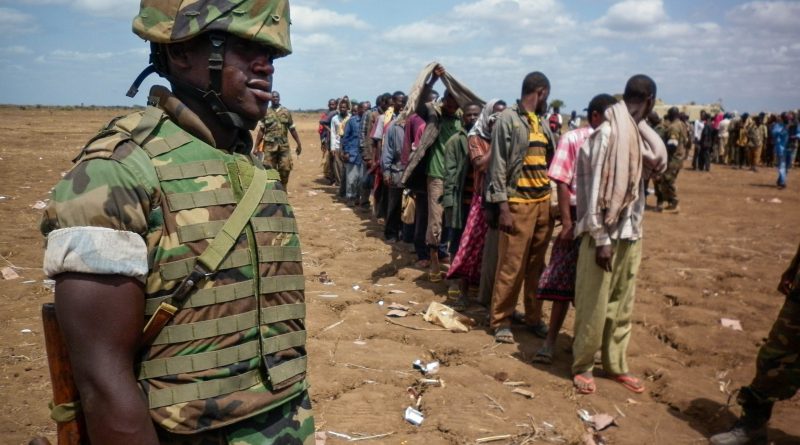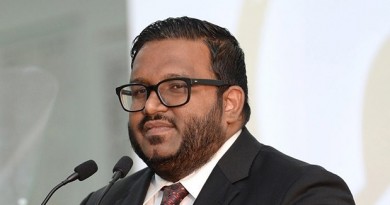Somalia Hosts Summit on Combating al-Shabaab
Sophia Alicea
Staff Writer
The 2023 Somalia-Frontline States Summit hosted by Somali President Hassan Sheikh Mohamud invited President William Ruto of Kenya, President Ismail Omar Guelleh of Djibouti, and Prime Minister Abiy Ahmed of Ethiopia, on February 1 to discuss security measures against the terrorist group al-Shabaab in the Horn of Africa, reports Al Jazeera. al-Shabaab, or “the Youth,” is a militant group that adheres to a fundamentalist interpretation of Islam that was formed in the early 2000s and has carried out deadly attacks across much of East Africa, according to The Council on Foreign Relations. In order to develop a strategy to counter al-Shabaab, the leaders discussed militaristic offensive strategies against the group.
According to AfricaNews, al-Shabaab has been waging an insurgency against the Somali government for about fifteen years. Once President Mohamud took office in May 2022, he declared an all-out war on the Jihadist group. Moreover, in recent months, local militias as well as the Somali military have begun to take back sections of territory the militants had taken. However, more is needed to stop the rebels, as they have fought back numerous times in fortified regions, including the Somali capital Mogadishu.
In 2006, the transitional government of Somalia was undergoing a civil war against the rapidly expanding Islamic Courts Union (ICU) according to the Center for International Security and Cooperation at Stanford University. The ICU then controlled much of Southern Somalia before the United States provided support to Ethiopian troops who took back Mogadishu.
Once the ICU lost control of Mogadishu, they switched their objective to taking down the Ethiopian military, beginning their insurgency campaign under the name of al-Shabaab. The group adopted hardline ideologies similar to terrorist groups in the Middle East such as al-Qaeda and announced their motivations to eliminate Christian populations in Africa. By 2009, they reclaimed Mogadishu and were responsible for bombings, deadly raids, and other terrorist attacks. al-Shabaab has since been engaged by Kenyan, Ethiopian, and Somali troops.
Once the group hit around 9,000 members, they joined al-Qaeda to promote the spread of their violent interpretation of Islam in the region back in 2012, according to CNN. Rather than aligning themselves with an all-out global Jihadist movement, however, al-Shabaab’s territorial expansion goals seemed to be confined to the Horn of Africa. In 2014, members of the African Union and the United States joined forces and began air strikes in the al-Shabaab-controlled territory. This allowed the Somali government to regain control over its capital and fill the power vacuum left by the terror group. They have since been embroiled in al-Shabaab’s insurgency campaign in the region as they try to keep Somalia free from terrorism. In the recent February meeting, President Mohamud, promised to rid the region of terrorism permanently as the streets of Mogadishu faced regular attacks from Al-Shabaab, reports The Independent.
Since the group has weakened, they have turned to targeting civilians as opposed to opposing military forces. This means that vulnerable regions in the rural parts of Somalia, which already suffer from extreme poverty, must also face attacks from al-Shabaab insurgents. The United Nations documents that Somalia faces catastrophic levels of famine. A few months ago, Somalia underwent the most devastating drought in its history.
According to the International Rescue Committee, the situation in Somalia is not naturally occurring as droughts have become more frequent and severe due to human-inflicted climate change and decades of violence caused by al-Shabaab have severely damaged the nation’s infrastructure. All of these factors have contributed to making Somalia dangerously dependent on foreign grains. The United Nations Office for the Coordination of Humanitarian Affairs (OCHA) predicts that the crisis will triple between now and June of 2023, going from affecting 214,000 people to 727,000 people, as famine, drought, and violence continue to endanger lives.
Additionally, the famine crisis in Somalia has displaced hundreds of thousands of people leaving them even more susceptible to the potential harms of al-Shabaab and the ongoing climate crisis. There is hope for the region and future of Somalia, however, as The Council on Foreign Relations reports that al-Shabaab is declining in strength and is currently at the weakest point it has ever been.
Image courtesy of AMISOM Public Information, Flickr


